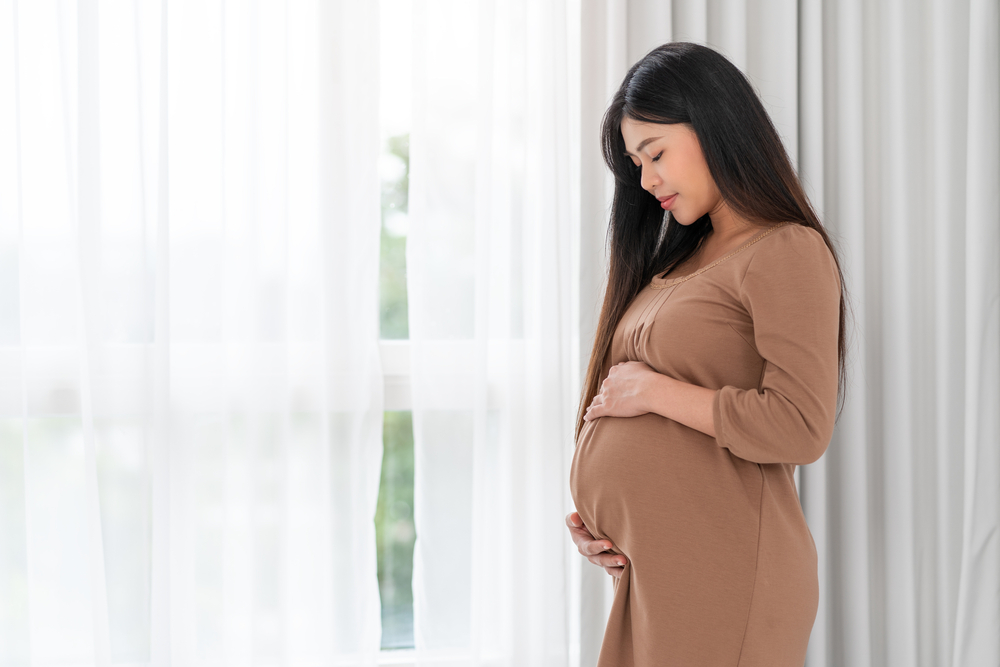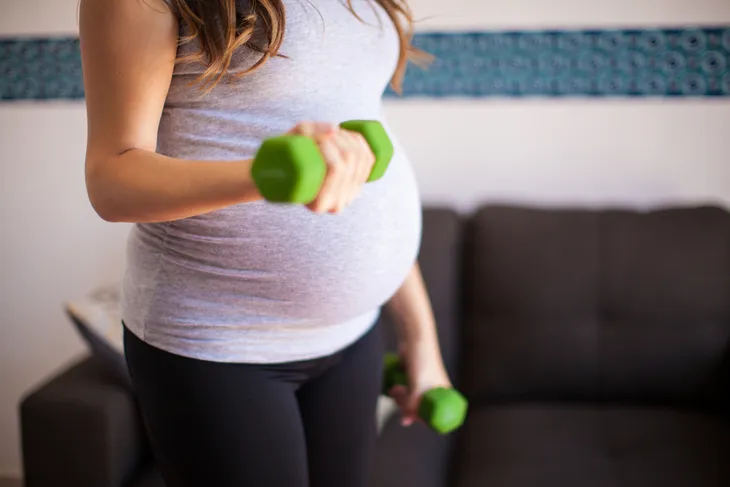Pregnancy is a distinct life stage characterized by dramatic physiological changes, and medical tracking of those changes, including weight gain, is routine to monitor the health of the mother and the developing infant. What may be missing from weight monitoring is the psychological and emotional component of these changes.
Western society tends to view the female body as an object that should be constantly inspected and evaluated, and valued for its utility and ability to give pleasure. Women can also ascribe to these notions, engaging in constant self-inspection and evaluation of their own bodies through the process of self-objectification.
A woman’s ability to meet societal standards for the female body can be a source of power, and any deviation from the ideal physical form can result in a loss of power. Exercise, diet or a combination of both are often seen as tools women can use to control their bodies to attain and maintain the ideal female form.
The ability to effectively control one’s body shape, size and appearance is seen as an accomplishment. Women who miss the mark — those who are unsuccessful in controlling their bodies — can be affected both physically and emotionally. These women may show signs of depression, disordered eating, negative body image and low libido.
Given the ubiquity of body objectification, these psychological repercussions can form part of women’s daily lives.
Body image in pregnancy
Societal pressures to maintain the ideal female body may be heightened during pregnancy. As women negotiate their new roles as mothers-to-be, previous research has shown that women report moderate declines in body image and body satisfaction as pregnancy progresses.
Interviews with young mothers exploring their experiences of weight gain during their first pregnancy revealed a view of the pregnant body that is distinct from the ideal female body. This falls into the larger context of how femininity is viewed: that women’s value lies in their appearance and ability to give birth.
In this perspective, the pregnant body is not only distinct from the ideal female body, but deliberately conflicts with the view of the ideal female body as an aesthetic object. The pregnant body is still monitored and evaluated, but emphasis is placed on its utility and reproductive role.
Previous analysis of individual and group interviews with young mothers, along with examination of booklets and handouts given to pregnant women, showed discussions around pregnancy and childbirth are often filtered through a medical lens.
This medical context has been described as reducing women’s power over their pregnant bodies by assuming women are less emotionally competent during pregnancy and are unable to make proper decisions for themselves about their bodies. It necessitates a separation between women’s minds and their bodies, and prioritizes the developing infant.
Soon after pregnancy, women often use restricted eating and structured exercise to try to craft their bodies back into the societal ideal of a lean female form. If possible, they may try to remain close to this form during pregnancy.
A pregnant woman’s fixation on needing to return to pre-pregnancy weight could meet the criteria for possible presence of body dysmorphia and increased risk for disordered eating.
When women continually monitor and evaluate their bodies for deviations from the ideal female form, their well-being can become largely dependent on their physical appearance. This can further result in lower psychological functioning and minimization of their lived experiences.
Defining psychosocial goals
While medicalized monitoring during pregnancy has done well to focus on physical development of both mother and infant, psychosocial assessment may be a neglected part of this process.
There are defined psychosocial adjustment goals for several life stages. For example, emerging adults are encouraged to become independent, given space for identity formation, and are nudged towards leaving the parental home. Older adults are encouraged to accept the nature and extent of the physical and emotional changes associated with aging, as well as changes in identity as these relate to family and career.
Similarly, outlining of psychosocial adjustment goals for pregnancy would empower women in their acceptance of their body’s physical changes, and how those differ from societal expectations of the ideal female form. As the level of self-objectification is tracked during pregnancy, pregnant women can be encouraged to move from body dysmorphia towards body acceptance.
This could help establish positive behaviours in which food is used for comfort and nourishment, and structured physical activity is as much an enjoyable endeavour as a means towards improving health.
Simone Holligan, Lecturer, College of Social & Applied Human Sciences, University of Guelph
![]()
This article is republished from The Conversation under a Creative Commons license. Read the original article.






